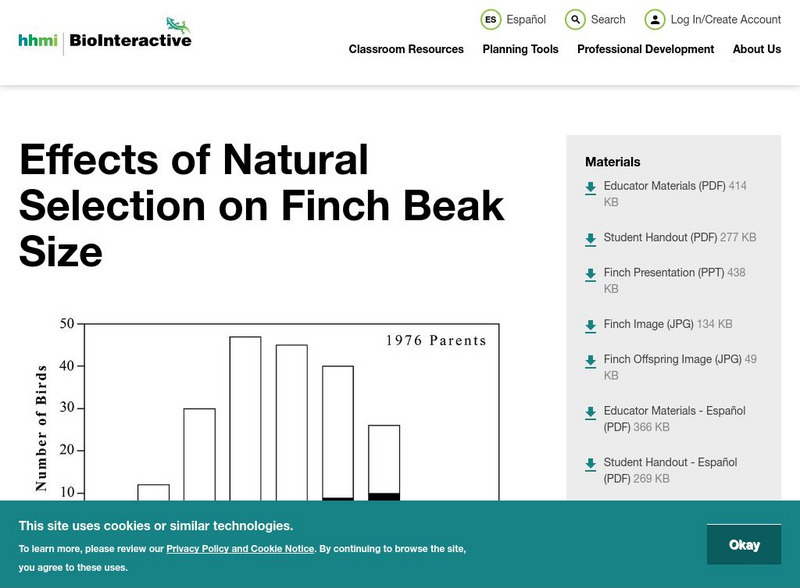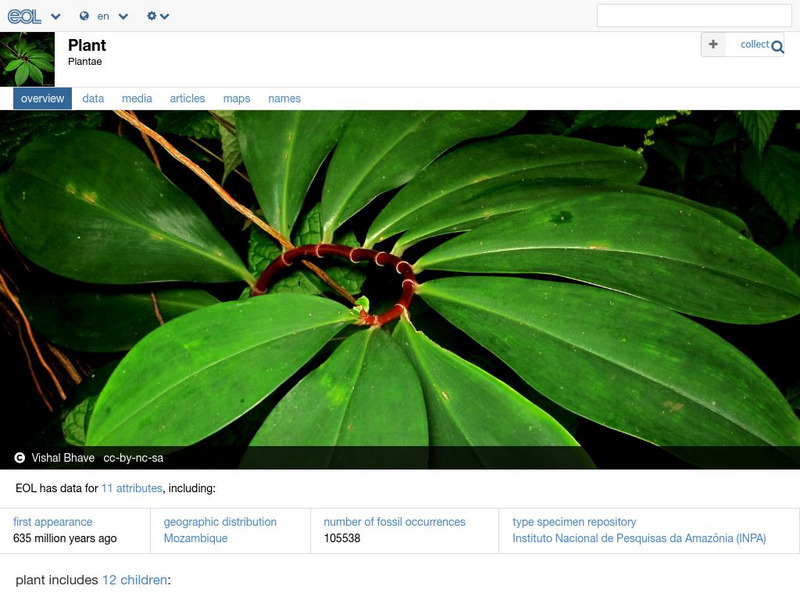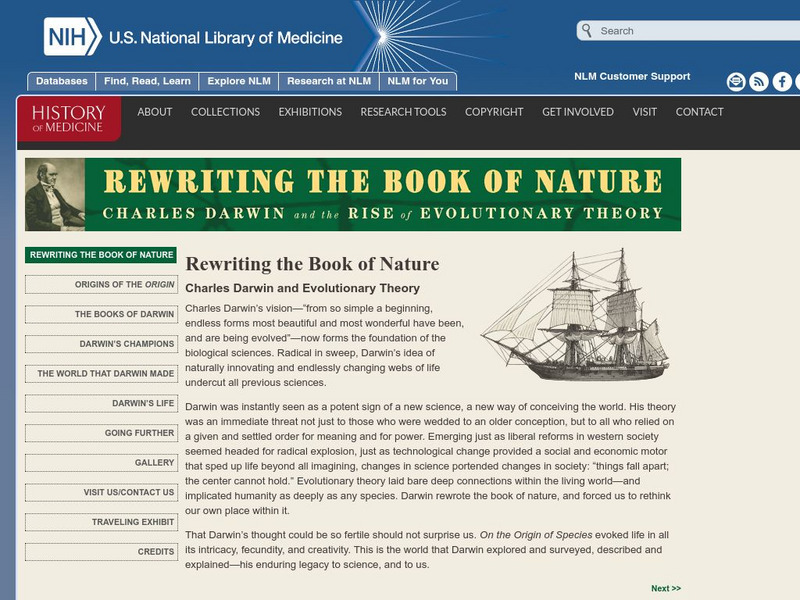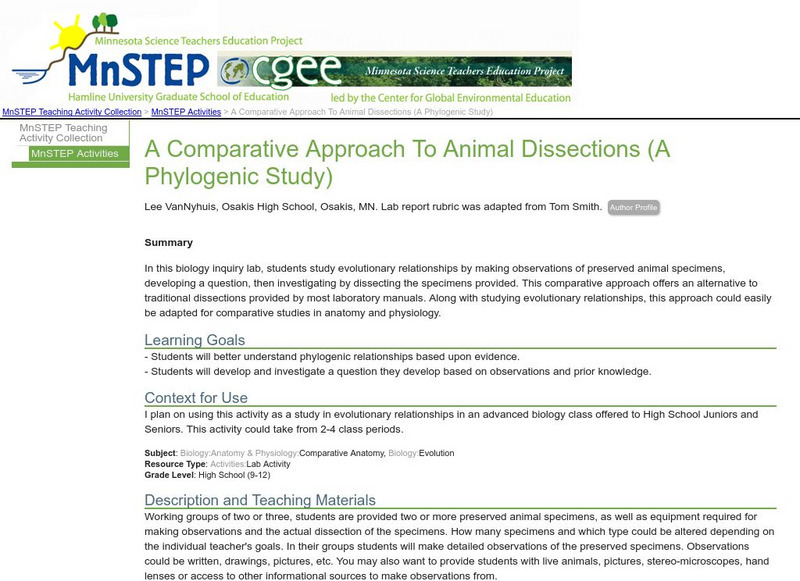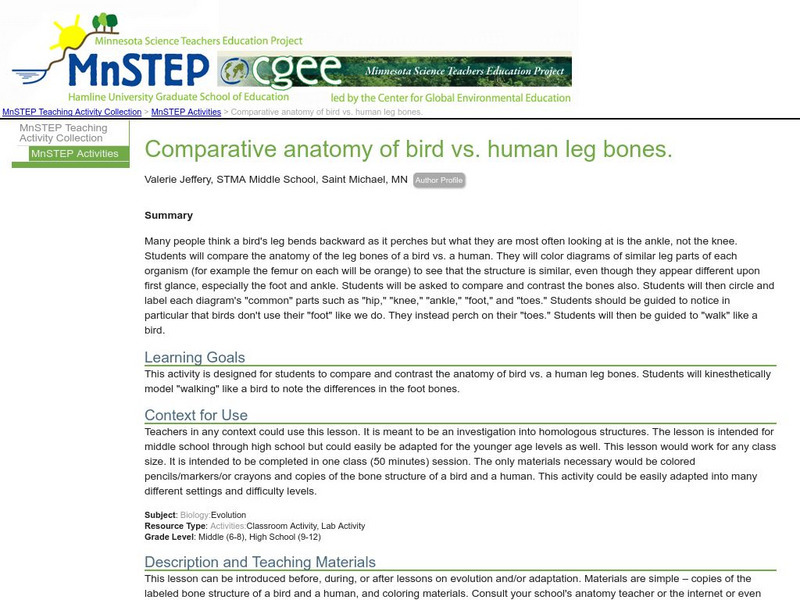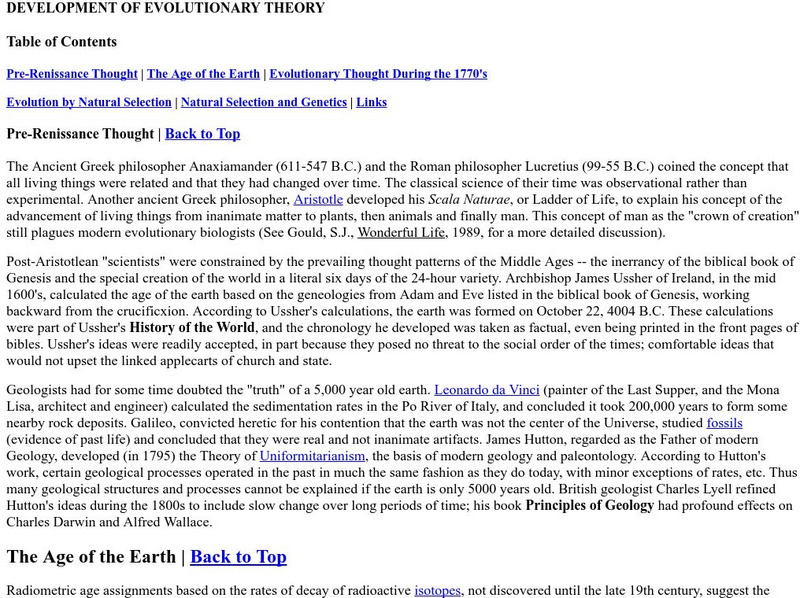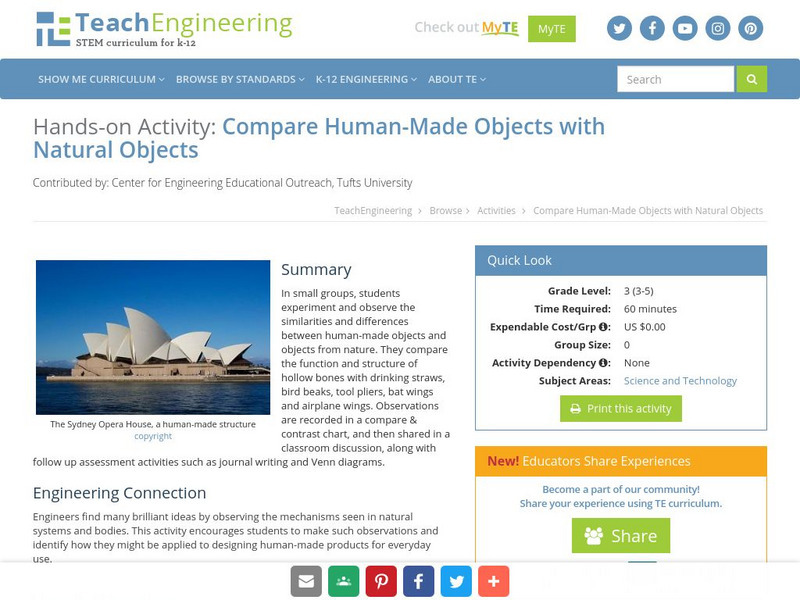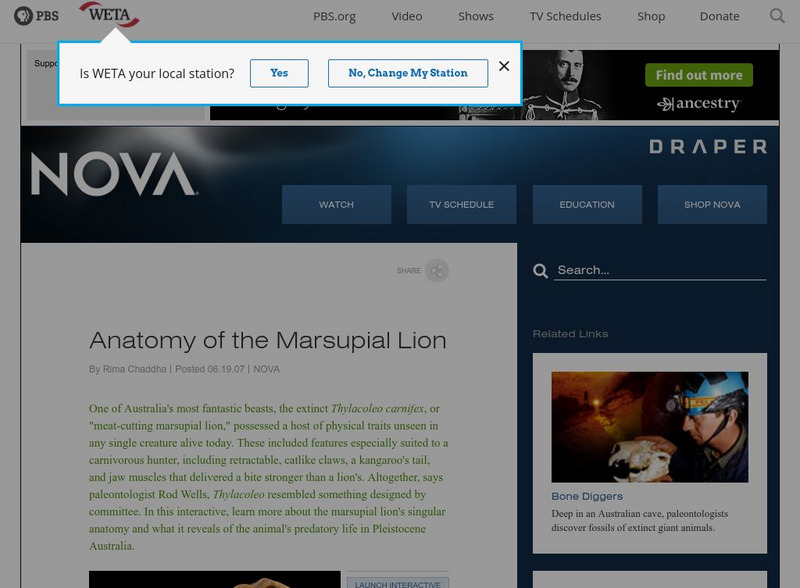Howard Hughes Medical Institute
Hhmi: Bio Interactive: Effects of Natural Selection on Finch Beak Size
In this activity, students examine research on finches on the island of Daphne Major in the Galapagos Islands. The depth of the finches' beaks was measured before and after a drought. This data is displayed in graphs and students are...
Encyclopedia of Life
Encyclopedia of Life: Plants
Thorough resource examines plants with a description, pictures, and maps. Includes facts on ecology, evolution, functional adaptations, and external links.
PBS
Pbs Learning Media: Mimicry: The Orchid and the Bee
In this photograph from Oxford Scientific Films, a horned bee attempts to mate with an Ophrys orchid, which has evolved to resemble a female bee.
Estrella Mountain Community College
Estrella Mountian College: Introduction to Genetics
This site explains genetic beliefs before and after Mendel, and also includes a section on Mendel himself and his experiments, entitled, "The Monk and his Peas".
PBS
Pbs Learning Media: Dinosaur Train
Dinosaur Train sparks children's interest in life science and natural history. As they explore a variety of animals, children develop the inquiry skills and knowledge needed to help them think, talk and act like paleontologists. Choose...
National Institutes of Health
National Library of Medicine: Rewriting the Book of Nature
Explore the work of Charles Darwin and the theory of evolution. This comprehensive resource includes information about Darwin's life in addition to the process of species evolution.
CK-12 Foundation
Ck 12: Biology: Predation
[Free Registration/Login may be required to access all resource tools.] Discusses how predation affects population size and evolution.
Other
Historia Del Idioma Espanol
An informative study, in Spanish, of the history of the Spanish language, its origins, its evolution, and its history in America. There is also an article about the Argentine adaptations of the language, and another link that covers the...
Alabama Learning Exchange
Alex: You Don't Taste the Way You Look!
This Evolution lesson uses edible materials to demonstrate how a mimic acquires survival advantage. This particular lesson provides students an easy approach to learn and retain this information.
Concord Consortium
Concord Consortium: Stem Resources: The Virtual Greenhouse
A virtual greenhouse to study how plants adapt to live in different environments. Students will "plant" three different types of plants that thrive with different amounts of sunlight. Lab includes questions that could be saved and graded...
Science Education Resource Center at Carleton College
Serc: A Comparative Approach to Animal Dissections (A Phylogenic Study)
In this biology inquiry lab, students study evolutionary relationships by making observations of preserved animal specimens, developing a question, then investigating by dissecting the specimens provided. This comparative approach offers...
Science Education Resource Center at Carleton College
Serc: Comparative Anatomy of Bird vs. Human Leg Bones
This activity is designed for students to compare and contrast the anatomy of bird and human leg bones. Students will kinesthetically model walking like a bird to note the differences in the foot bones.
Estrella Mountain Community College
Online Biology Book: Development of Evolutionary Theory
Using diagrams and descriptive illustrations, this college-level biology reference book discusses the development of evolutionary theory.
TeachEngineering
Teach Engineering: Compare Human Made Objects With Natural Objects
In small groups, students will experiment and observe the similarities and differences between human-made objects and nature. The students will compare the function and structure of hollow bones with drinking straws, bird beaks, tool...
CK-12 Foundation
Ck 12: Biology: Principles of Biology
[Free Registration/Login may be required to access all resource tools.] Covers the four unifying principles of biology.
OneWorld UK
One World: Tiki the Penguin: Genetic Engineering: Whose Genes?
Come along with Tiki the Penguin as he discovers what makes you a human or him a penguin! This site details some of the major issues relative to genetics - such as genetic engineering - in a way that is interesting and relevant to kids.
Howard Hughes Medical Institute
Hhmi: Bio Interactive: Pocket Mouse Film With Quiz
Learn about selective pressure and how genes are involved in adaptations by watching this video on pocket mice. The video focuses on the research of Dr. Michael Nachman, "whose work in the field and in the lab has quantified the...
PBS
Pbs Teachers: Scientific American: Prime Time Primates: Monkey See, Monkey Do?
Explore the evolutionary advantage of stereoscopic vision and the fully opposable thumb, and describe how each adaptation might affect the use of tools in humans and primates.
Discovery Education
Discovery Education: Plants
The Discovery Channel provides numerous lesson plans dealing with plants. Content is organized by grade level, but all lesson plans include suggestions for adaptations for older or younger audiences.
PBS
Nova: Bone Diggers: Anatomy of Thylacoleo
Thylacoleo or the extinct marsupial lion had an unusual array of adaptations that enabled it to be an effective predator. Explore an interactive fossil of the lion to learn more about each of its' adaptations.
CK-12 Foundation
Ck 12: Episd: Predation
[Free Registration/Login may be required to access all resource tools.] Discover the predator prey relationship and the ways organisms adapt to predation. Understand the impact predation has on population size and evolution.
Crayola
Crayola: Birth of Bits and Bytes (Lesson Plan)
This lesson plan incorporates many subjects! Young scholars create a flow chart after studying the "Evolution," of computers. Also provides adaptations and references to use. (To access this lesson plan, you must register with...
Biology Corner
Biology Corner: Peppered Moths Simulation
This simulation allows students to take on the role of a bird and eat different types of peppered moths. Students analyze which types of peppered moths do better in various environments.
Estrella Mountain Community College
Online Biology Book: Biodiversity: Nonvascular & Nonseed Vascular Plants
Photographs, informative tables, and illustrated diagrams help explain the diversity of the plant kingdom in this college-level textbook.


